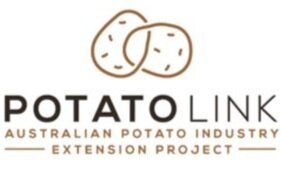New root pathogen management project from Western Sydney University
Distinguished Professor Brajesh Singh of Western Sydney University is leading a CRC Future Food Systems -project on ‘Novel bio-based solutions for effective management of key root pathogens - increasing farm profitability’. The overall aim of the project is to provide novel solutions to control key root pathogens in horticulture crops with particular focus on potato and lettuce to significantly advance economic and technological growth of Australian agribusiness industries. It is developing and applying novel bio-based technologies that simultaneously harness crop-optimised microbiomes and plant immune systems and biochemical products to transform how the horticulture industry tackles the key biotic constraint of root diseases. The project is delivering -
In the short-term, industry access to biobased solutions (microbial, microbiome and metabolite tools) for effective control of plant diseases in potato and lettuce that are economically attractive and environmentally friendly.
In the medium term, effective approaches of disease management by harnessing the plant microbiome to reduce disease incidence.
Long-term research and commercial partnerships for an effective discovery pipeline and continuous supply of bio-based solutions for biotic (e.g. disease and pest incidence) or abiotic (P mobilisation, water-use efficiency) stress to sustain and increase farm productivity and profitability.
Significantly enhanced capacity building for researchers & industry personnel working in crop diseases, by training a postdoc scientist, and >200 growers and consultants.
Prof Singh also leads an international project of Global Initiative of Sustainable Agriculture and Environment. This initiative has sampled >1,200 sites across the globe including >350 samples of potato crop to identify beneficial and harmful microbes and soil conditions linked to farm productivity.
The research team is keen to develop a partnership with potatoLink to deliver real solutions for potato growers via participatory research and extension activities.


